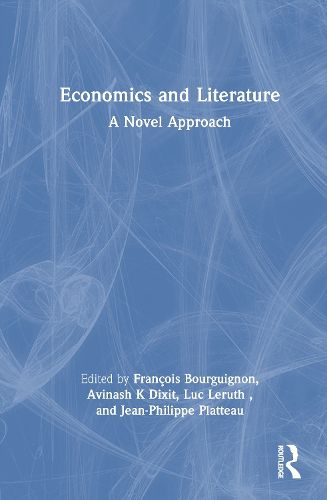Readings Newsletter
Become a Readings Member to make your shopping experience even easier.
Sign in or sign up for free!
You’re not far away from qualifying for FREE standard shipping within Australia
You’ve qualified for FREE standard shipping within Australia
The cart is loading…






Economics and fiction often pursue parallel objectives. Economists analyse human decisions and interactions in markets and other institutions. Fiction writers also provide keen insights into individual minds and motives, examining how their characters respond to conflict and tensions in varied situations. This book explores the insights to be gained from developing this parallel.
In each chapter, economists discuss classic or contemporary literary creations exploring economic incentives that motivate the characters, the economic mechanisms that tie them together, and/or the economic context in which they live and develop. Exploring the synergy across economics and literature offers new understandings of themes including capitalism and colonialism, marriage and markets, gender norms, inheritance and estates, and the political economy of poverty. The broad and deep range of literary works includes writers from Shakespeare and Goethe, through Chekov and Steinbeck, to recent Nobelists Abdulrazak Gurnah and Han Kang. By offering new understandings of both economics and literature, readers will gain deeper insights into people's thought processes, choices, and consequences.
This book will captivate readers in economics, social sciences and the humanities and open their minds to the viewing of economic ideas and concepts through the prism of great works of literature.
$9.00 standard shipping within Australia
FREE standard shipping within Australia for orders over $100.00
Express & International shipping calculated at checkout
Economics and fiction often pursue parallel objectives. Economists analyse human decisions and interactions in markets and other institutions. Fiction writers also provide keen insights into individual minds and motives, examining how their characters respond to conflict and tensions in varied situations. This book explores the insights to be gained from developing this parallel.
In each chapter, economists discuss classic or contemporary literary creations exploring economic incentives that motivate the characters, the economic mechanisms that tie them together, and/or the economic context in which they live and develop. Exploring the synergy across economics and literature offers new understandings of themes including capitalism and colonialism, marriage and markets, gender norms, inheritance and estates, and the political economy of poverty. The broad and deep range of literary works includes writers from Shakespeare and Goethe, through Chekov and Steinbeck, to recent Nobelists Abdulrazak Gurnah and Han Kang. By offering new understandings of both economics and literature, readers will gain deeper insights into people's thought processes, choices, and consequences.
This book will captivate readers in economics, social sciences and the humanities and open their minds to the viewing of economic ideas and concepts through the prism of great works of literature.